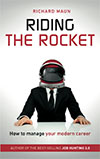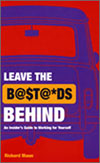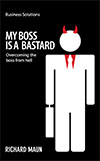better business blog
Tips and stories to add value to you and your organisation

How To Start A Conversation

This isn't a cup of tea... it's a conversation starter!
A client asked me how to start a conversation and it reminded me that it’s often easier to talk about networking than it is to go and do it. Starting conversations is easy, when you have prepared a couple of opening gambits. These can include:
A) You smile, profer your hand for a fellow networker to shake and introduce yourself. You can then ask them: Have you had a busy day? (Or do you have a busy day to look forward to?). These are closed questions and you can bet they’ll be answered with a ‘Yes’. Then you can follow up with an ‘open’ conversation starter such as: And what does a busy day look like for you?
B) Recognise that people like to begin a conversation with safe ‘Rituals’ such as organising drinks and asking how you are? Answer: Fine. (This is safe and predictable… if you want to scramble their brain then firmly clasp their arm and thank them for their concern, before talking wildly about your troubles). After a Ritual introduction people are happy to do some ‘Pastiming’. This is where we chat about safe subjects, such as the weather, the journey to the meeting, if they watched a popular TV programme and so on. Pastiming requires more thought than Ritual and there’s more risk involved (perhaps in disclosing you watch the Antiques Roadshow) and with a few easy questions you can soon find yourself in the flow of a productive conversation.
Ritual and Pastiming are two TA terms that relate to Time Structuring… which is a model that helps us to work out where we are in a conversation. It’s only once we’ve made a friend or built some rapport that we can move up to ‘Activity’ and get down to business.
And a tip that I often offer is simply to learn five good questions that are easy for people to answer. If you’re stressed then it’s simpler to just use rote learning to get a conversation started, rather than having the burden of thinking in the moment! Suggestions include:
1) How long have you done that?
2) How did you get started?
3) What trends are there in your industry?
4) What mistakes do people tend to make when they start out?
5) What do you look for in a client?
Preparation is the key and it’s okay to rehearse your questions on the journey, to make sure you have them up and running in your head. That’s what I do!
And remember… people like to be listened to, so if you’re doing more nodding and less talking, the other person will feel like it’s a really great conversation.
Happy chatting!
There are lots more tips to improve our people skills in the book How To Keep Your Job. Have you read it yet?
Tags: Job Hunting, networking
Yes – You Can Find Your Voice!
Sometimes life or work can spring a surprise on us and for a moment we waver and wonder what to do.
In that long moment of hesitation all sorts of things rush through our head. Fear, worries, uncertainty about the future, what should we do next?
And life is all about ‘moments and turning points’ …an elegant phrase that I wish was mine, but belongs to Alan Robertson, a Cranfield colleague and all-round good chap.
In these tiny bubbles of time we have to think on our feet and remind ourselves that:
1) We’re OK! We are good, worthwhile people at heart.
2) We have a right to be here and a right to decide for ourselves what to do.
3) We have a voice and can use it. We can pause and think and then we can speak and be heard – we can find our voice.
Last week a friend of mine found her voice and resigned her job, to begin a new life as a consultant.
Last week my colleague found his voice and asked for some help to choose between two exciting job opportunities.
Last week a client practised his presentation skills and his voice moved from monotony to fluidity. He found his selling voice and secured a new job.
Sometimes we want to say things to people, to be heard, to share our feelings and our voice catches in the back of our throat. When this happens, take a deep breath, remember that you’re a worthwhile person and speak out loudly and clearly. Maybe:
…Ask for what you need.
…Share your thoughts.
…Say ‘no thanks’ or ‘not yet’.
…Tell someone how you feel.
…Take that decision.
And enjoy the moment as you find your voice.
When will you be finding your voice this week?
Tags: Job Hunting
e-publishing
Click icon for details


recent posts
browse archive
books
Click cover to view details on Amazon
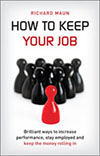
How to Keep Your Job
Brilliant ways to increase performance, stay employed and keep the money rolling in
Published 2011 Marshall Cavendish
208pp
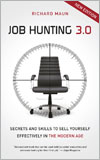
Job Hunting 3.0
Secrets and skills to sell yourself effectively in the Modern Age
Published 2010 Marshall Cavendish
260pp

 RSS
RSS
